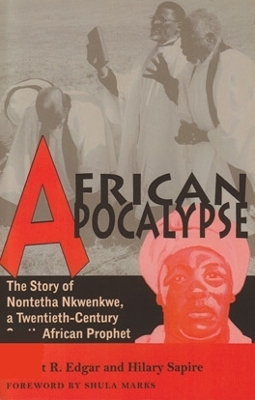The devastating influenza epidemic of 1918 ripped through southern Africa. In its aftermath, revivalist and millenarian movements sprouted. Prophets appeared bearing messages of resistance, redemption, and renewal. African Apocalypse: The Story of Nontetha Nkwenkwe, A Twentieth-Century Prophet is the remarkable story of one such prophet, a middle-aged Xhosa woman named Nontetha. After surviving the deadly virus, Nontetha proclaimed that a series of dreams revealed to her that the influenza had been a punishment from God. Consequently, she embarked on a mission to reform her society. She imposed numerous prohibitions and rules on her followers. In a parallel movement, in 1919, millenarian Israelites congregated in the holy village of Ntabelanga, 100 miles north of Nontetha's area, to await the end of the world. In May 1921, police killed nearly 200 Israelites near Queenstown in a showdown over attempts to expel the settlers. Accused of sedition by an alarmed government, Nontetha was committed to Fort Beaufort Mental Hospital in 1922. On Nontetha's death in 1935, officials buried her in an unmarked pauper's grave. In 1997, Edgar and Sapire located Nontetha's grave.
Of Edgar's efforts to return Nontetha to her home, the New York Times said, \u201cOne would not expect, perhaps, that a mild-mannered professor from Howard University would turn out to be the Indiana Jones of South Africa.\u201d African Apocalypse touches on a variety of themes, including African Christianity, gender, protest, the social history of madness, and the engagement of professional historians in contemporary issues.
- ISBN13 9780896802087
- Publish Date 31 December 1999 (first published 1 January 1995)
- Publish Status Active
- Publish Country US
- Imprint Ohio University Press
- Format Paperback
- Pages 213
- Language English
